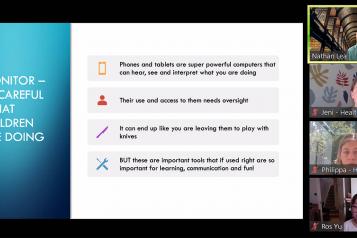Is the NHS sharing your data? What you need to know
This article was updated on 23 July.
Here's what you need to know:
- NHS Digital is the NHS provider for data and IT systems for the NHS in England.
- NHS Digital recently announced plans to allow an NHS system to extract patient data from doctors’ surgeries in England. The new data-sharing system was due to start on 1 September but data collection will only now begin when strict new criteria have been met.
- Shared data helps the NHS. It has been used to find the first treatment for coronavirus and for vaccine research.
- The data that NHS Digital will hold and share is anonymous. It doesn't include your name, address, or any identifiable numbers like your NHS Number.
- There are strict rules about how the NHS can use your data. It's only shared securely and safely for planning, commissioning and research purposes. Your data will never be sold to marketing or insurance companies.
Opting out
There is no deadline for opting out of sharing your data. You can opt out at any time. However, in order to avoid any information being shared from your GP records, you must opt out before the data transfer begins (it was due to start on 1 September but has been postponed with no new date announced as of yet). If you miss this deadline, you can still opt out of further future information being shared, but data from the past 10 years may already have been taken from your medical records.
What will be collected?
NHS Digital will collect information on diagnoses, symptoms, test results, medications, information about physical, mental and sexual health, a person’s sex, ethnicity, sexual orientation and which staff have treated them.
This will include most of the historic data from each patient’s record.
Will my data be collected in a way that prevents me from being identified?
The data collection won’t include people’s names or where they live. Of course, that’s not the only information that can identify someone. Other details, like NHS numbers, postcodes and dates of birth, which can identify people, will go through a process called pseudonymisation, which means codes will be generated to replace these details. NHS Digital says this means that no one will be able to directly identify you in the data, without also having access to the key that links each patient to their code.
NHS Digital retains the keys to link these codes back to data that could identify you, but won’t do that “unless in the circumstances of any specific request it is necessary for it to be provided in an identifiable form”.
NHS Digital says they’ll only do that in certain cases when there is a valid legal reason, for example, if you consent to participate in a clinical trial, or where the data was needed by a health professional to provide you care.
Is this data being sold?
This depends on your definition of selling data.
The NHS Digital website says: “We are not going to sell your data”. But there is a price list on the organisation’s website listing charges for its Data Access Request Service.
On this page, NHS Digital says “We do not charge for data but we do apply charges to cover the cost of processing and delivering our service.”
Any organisations that want to pay to access this data need to convince the NHS Digital Data Access Request Service that they have a legal basis to use the data and will do so safely, securely and appropriately. Requests are also subject to scrutiny by the Independent Group Advising on the Release of Data.
NHS Digital publishes information on what data it releases and to whom every month. Many recipients are organisations like the Office for National Statistics, local authorities, government departments like the Department of Health and Social Care and research organisations like universities and charities, but they can also include companies that get approved.
NHS Digital says: “Any data that NHS Digital collects will only be used for health and care purposes. It is never shared with marketing or insurance companies.”
What do I need to do?
If you're happy with your confidential patient information being used for research and planning you do not need to do anything.
If you're not happy you can stop your confidential patient information from being used for research and planning by opting out either from it being shared with NHS Digital in the first place or by opting out from NHS Digital sharing your data for research and planning.
Stopping data being shared with NHS Digital
If you do not want your patient data shared with NHS Digital, you can return this form to your GP practice. This is called a Type 1 Opt-out with your GP practice. You do this at any time and you can change your mind at any time and withdraw a Type 1 Opt-out.
Stopping NHS Digital from sharing your data further
You can opt out of NHS Digital sharing your data by:
Online: Find out how to make your choice
Phone: 0300 303 5678 – Monday to Friday, 9am to 5pm (excluding bank holidays)
By post or email fill in the opt-out form and email it to enquiries@nhsdigital.nhs.uk
Alternatively, you can post the form to:
National Data Opt Out,
Contact Centre
NHS Digital
HM Government
7 and 8 Wellington Place
Leeds LS1 4AP

